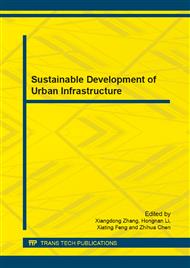[1]
Huang, Y. K., Feng, C. M., Why Customers Stay: An Analysis of Service Quality and Switching Cost on Choice Behavior by Catastrophe Model, Services Operations and Informatics [J], 2009, PP: 107-122.
DOI: 10.1109/soli.2006.237153
Google Scholar
[2]
Kok, K. The potential of Fuzzy Cognitive Maps for semi-quantitative scenario development, with an example from Brazil, Global Environmental Change [J], 2009, PP: 122-133.
DOI: 10.1016/j.gloenvcha.2008.08.003
Google Scholar
[3]
Lee, S., Ahn, H. Fuzzy cognitive map based on structural equation modeling for the design of controls in business-to-consumer e-commerce web-based systems, Expert Systems with Application [J], 2009, PP: 10447-10460.
DOI: 10.1016/j.eswa.2009.01.070
Google Scholar
[4]
Peter P. Groumpos, Chrysostomos D. Stylios. Modelling supervisory control systems using fuzzy cognitive maps, Chaos, Soltions and Frachals [J], 2000, PP: 329-336.
DOI: 10.1016/s0960-0779(98)00303-8
Google Scholar
[5]
Stylios, C. D., Georgopoulos, V. C., Malandraki, G. A., Chouliara, S. Fuzzy cognitive map architectures for medical decision support systems, Applied Soft Computing [J], PP: 1243-1251.
DOI: 10.1016/j.asoc.2007.02.022
Google Scholar
[6]
Kang, I., Lee. S., Choi, J. Using fuzzy cognitive map for the relationship management in airline service, Expert Systems with Application [J], 2004, PP: 545-555.
DOI: 10.1016/j.eswa.2003.10.012
Google Scholar
[7]
Tsadiras, A. H. Comparing the inference capabilities of binary, trivalent and sigmoid fuzzy cognitive maps, Information Science [J], 2008, P: 3880-3894.
DOI: 10.1016/j.ins.2008.05.015
Google Scholar
[8]
Bueno, S., Salmeron, J. L. Fuzzy modeling Enterprise Resource Planning tool selection, Computer Standards & Interfaces [J], 2008, PP: 137-147.
DOI: 10.1016/j.csi.2007.08.001
Google Scholar
[9]
Kosko, B. Fuzzy cognitive maps, Man-Machine Studies [J], 1986, PP: 65-75.
Google Scholar
[10]
Lee, K. C., Kim, H. S. A Fuzzy Cognitive Map-Based Bi-Directional Inference Mechanism: An Application to Stock Investment Analysis, Intelligence Systems in Accounting, Finance and Management [J], 1997, PP: 41-57.
DOI: 10.1002/(sici)1099-1174(199703)6:1<41::aid-isaf119>3.0.co;2-j
Google Scholar


